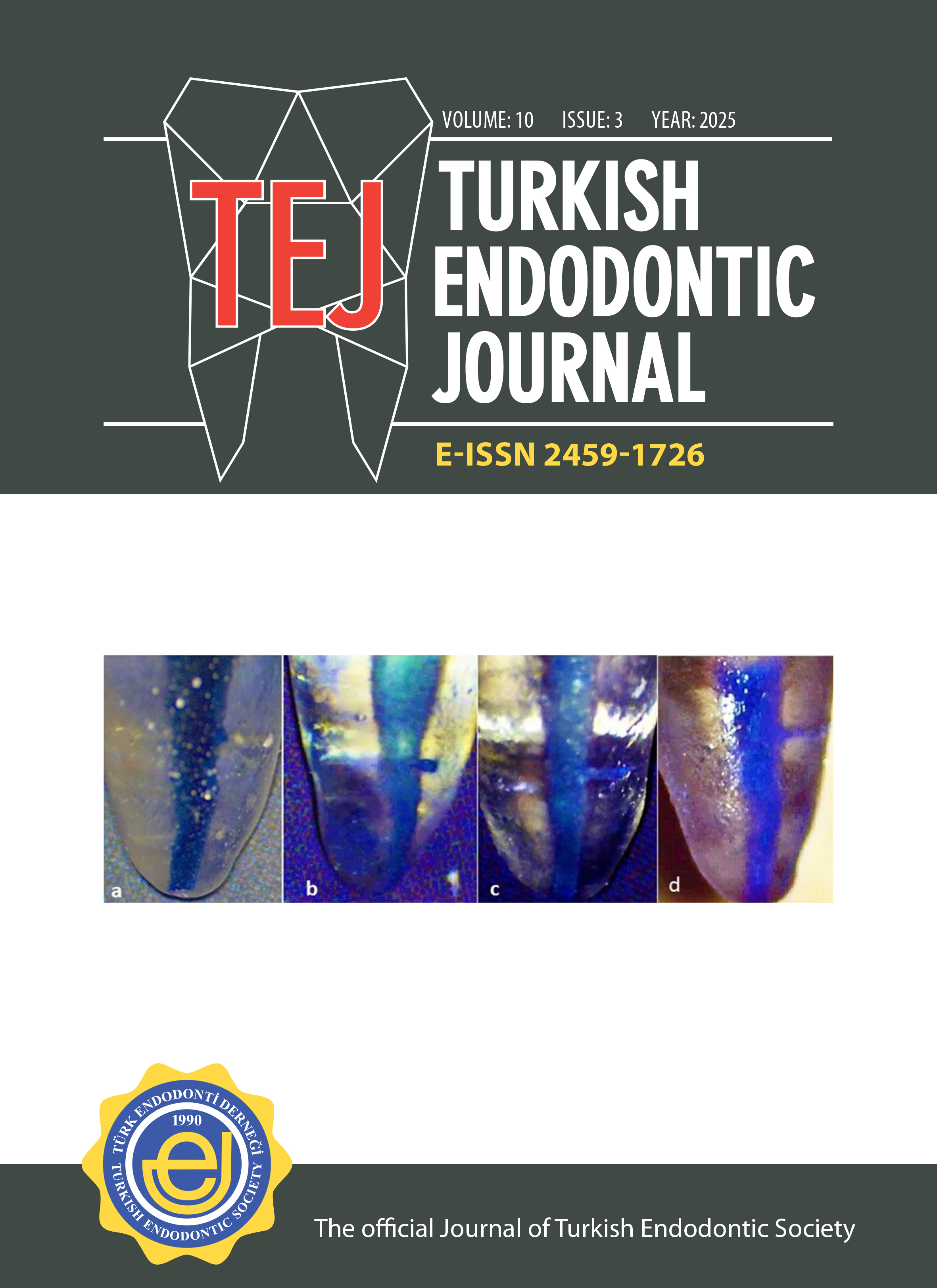Reviewer Guidelines
All submissions to the Turkish Endodontic Journal are first reviewed for completeness and only then sent to be assessed by the editorial board, which will decide whether they are suitable for peer review. Editorial team members will consider the peer-reviewed reports when deciding, but are not bound by the opinions or recommendations therein. A concern raised by a single peer reviewer or the editors themself may result in the manuscript being rejected. Authors receive peer review reports with the editorial decision on their manuscript. Peer reviewer selection is critical to the publication process. It is based on many factors, including expertise, conflict of interest and previous performance. Speed, thoroughness, sound reasoning and collegiality are highly desirable. Where an editorial board member is on the author list or has any other competing interest regarding a specific manuscript, another member of the Editorial Board will be assigned to oversee peer review.
Editor(s) are expected to obtain a minimum of two peer reviewers for manuscripts. Peer review reports could be in English or Turkish and provide constructive critical evaluations of the authors’ work, particularly with the appropriateness of methods used, whether the results are accurate, and whether the results support the conclusions. Editorial decisions should be based on peer-reviewer comments that meet these criteria rather than on recommendations made by short, superficial peer-reviewer reports which do not provide a rationale for the recommendations. When making a decision based on one report, editor(s) are expected only to do so if the peer review report meets the required standards. In the rare, exceptional, occasions when two independent peer reviewers cannot be secured, the Editor may act as a second reviewer or make a decision using only one report. Editorial board may not send resubmitted papers to referees if it seems that the authors have not made a serious attempt to address the reviewers' criticisms. Potential peer reviewers should inform the Editor of any possible conflict of interest before accepting an invitation to review a manuscript.
Communications between Editors and peer reviewers contain confidential information that should not be shared with third parties. Reviewers who seek assistance from a trainee or colleague in the performance of a review should acknowledge these individuals' contributions in the written comments submitted to the editor. Reviewers must maintain the confidentiality of the manuscript, which may prohibit the uploading of the manuscript to software or other AI technologies where confidentiality cannot be assured. Reviewers must request permission from the journal prior to using AI technology to facilitate their review.
Peer reviewers should adhere to the principles of COPE’s ethical guidelines for peer-reviewers which can be found at the following link: https://publicationethics.org/sites/default/files/ethical-guidelines-peer-reviewers-cope.pdf. Reviewers are asked to respond promptly within the number of days agreed. If reviewers anticipate a delay, they should inform the editorial board to keep the authors informed and, where necessary, find alternatives. We refrain from disclosing the identities of reviewers to authors or other reviewers, unless reviewers explicitly request to be recognized. Our preference is for reviewers to maintain anonymity throughout the entire review process and beyond. Referees are urged not to disclose their identities to authors without the knowledge of the Editorial Board Member. If referees choose to reveal their identities, they should do so through the publishing office. We strongly disapprove of any efforts by authors to confront reviewers or ascertain their identities. We neither affirm nor negate any conjecture about reviewers' identities, and we encourage referees to embrace a similar approach.




















